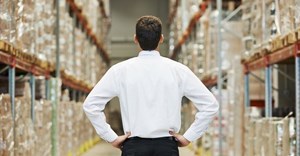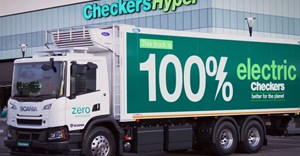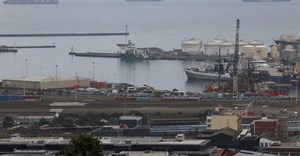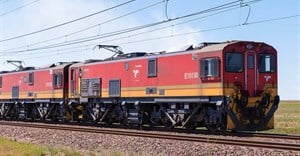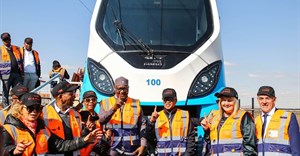Trending
Elections 2024
Jobs
- Procurement Manager - CIPS Cape Town
- Warehouse General Worker George
- Warehouse Team Leader George
- Trainer - Driver Code 14 Cape Town
- Code 14 driver Johannesburg
- Logistics/Stock Intern Centurion
- Driver Johannesburg
The ongoing collision between tech and the transport and logistics sector
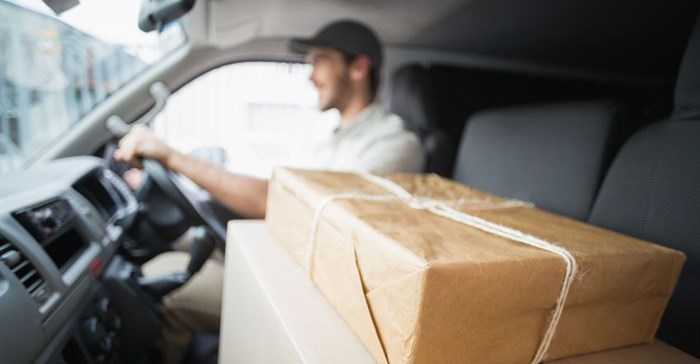
In South Africa, the sector is still riding the high from being recognised by government as a sector that cuts across all other industries in the Nine Point Plan. We are a fulcrum of economic development and the more we grow, the better for our economy.
At the beginning of the year, many a tech-trend were prophesied by industry players, looking to see where the sector was going.
Already into 2018’s second month, it is interesting to see how technology and the transport and logistics sector collided in 2017, and how is shaping 2018.
1. E-commerce is fast becoming the norm
While many global markets have co-opted e-commerce as part of their operational lexicon, we have only just immersed ourselves in that world.
Online retail really took shape this year and posed as a real contender to brick-and-mortar retail. Many online retail platforms asserted themselves, and inversely, some brick-and-mortar retail giants closed down or downsized.
This has meant that, as an industry in South Africa, we’ve had to consider focusing not only large-scale transportation but also, numerous small consignments which come with equally demanding warehouse and logistical challenges.
We will see more of this challenge and hopefully solutions, as more online retail establishments crop up.
2. The demanding future consumer starts demanding now
The millennials and the upcoming Generation Z (GenZ) have had much flack from many businesses because they operate very differently from other generations.
They are the interconnected generation that grew up with technology at their fingertips and a relatively dominating desire for instant gratification. This means that this generation is quick to demand and equally quick to castigate brands and businesses that cannot meet those demands.
For our sector, this means that the efficient delivery of goods is ever so important. It means that we ensure that customers, especially millennials and GenZ, are happy with courier systems.
Why should we care? They have purchasing power and because they are the adults of the future, this purchasing power will grow.
So the demanding future consumers start demanding now, and as a sector, it is our role to meet them where they need us most.
We are doing more to meet their needs with new players stepping in - be it Zulzi and their grocery delivery service, or Takealot and their efficient delivery service - the sector is scaling up and pacing up to meet this demanding consumer.
3. We are straddling digital and manual
Many industry professionals projected that the internet of things (IoT) will lend the industry a digitally-driven space.
These are pipe dreams even for global-north markets that have more sophisticated transport and logistics systems.
We are currently straddling both digital and manual operations. There are elements of the supply chain that have undergone digital transformation but we are not completely there yet.
One of the main reasons, particularly for developing economies, is that IT infrastructure is still relatively underdeveloped and therefore, cannot completely sustain and support a full-scale digitalisation of the sector. But bit by bit, we are getting there.
We see smart warehouses coming up, we are relying more on big data and the use of cloud computing is becoming more prevalent.
4. Artificial intelligence (AI) and warehouse robotics
In the last few months, there were reports of Facebook shutting down an experiment where two robots developed their own language that humans could not understand.
The truth is, while AI excites us, it is still quite new and probably scares us more. While many industry professionals projected that AI would be prevalent, I believe we still have some time to go before the technology can be comfortably implemented.
This is also seen in the way we have implemented warehouse robotics - a lot of these interventions are human controlled, and not run by autonomous robots. In time, perhaps, just not now or anytime soon.
5. Green transportation
While some countries are opting out of the Paris Accords, sustainability is becoming a more pressing issue. For a long time, smaller economies have not always had sustainability as a priority because it requires resources that are not always available.
However, as global warming continues, green transportation is becoming a more critical consideration for our sector. This translates mostly to rail transport and countries like ours and our neighbours, Mozambique, are working on rail networks that will meet these considerations.
6. Growth of the sector in African markets
African markets have grown by leaps and bounds. Cross-region connections across trade blocks are increasing, with large-scale road networks being built and rail networks being extended.
In a few years, the sector will be vastly different. A tell-tale sign of a growing transport and logistics sector is simply the cost of moving goods, and the time it takes to do so.
I believe we’re well on our way to cheaper transportation and efficient logistic operations and that this growth will continue, for as long as the continent continues to be entrepreneurial, with continued economic growth.













